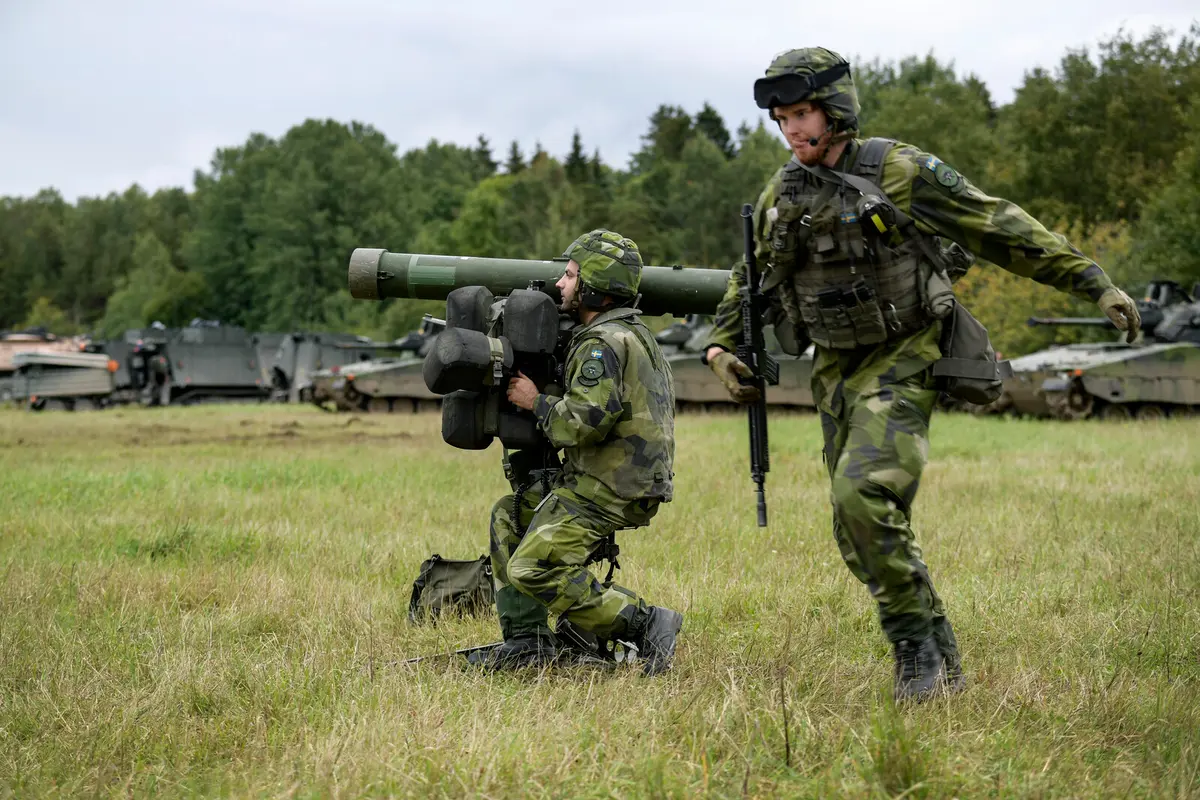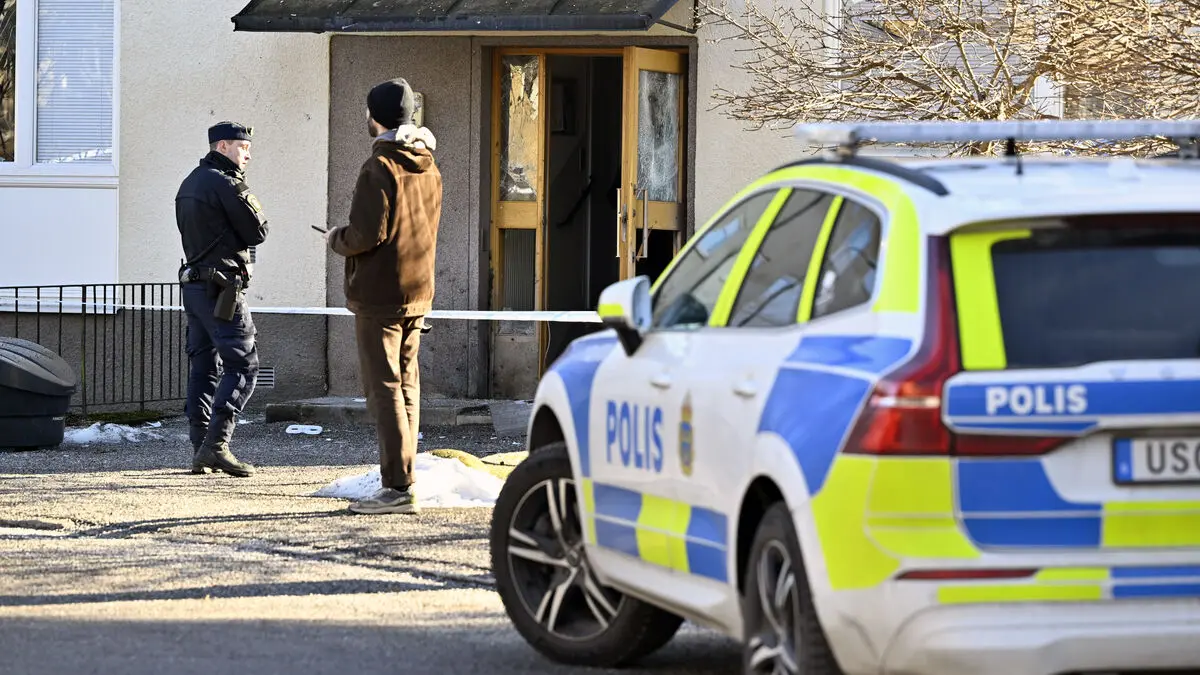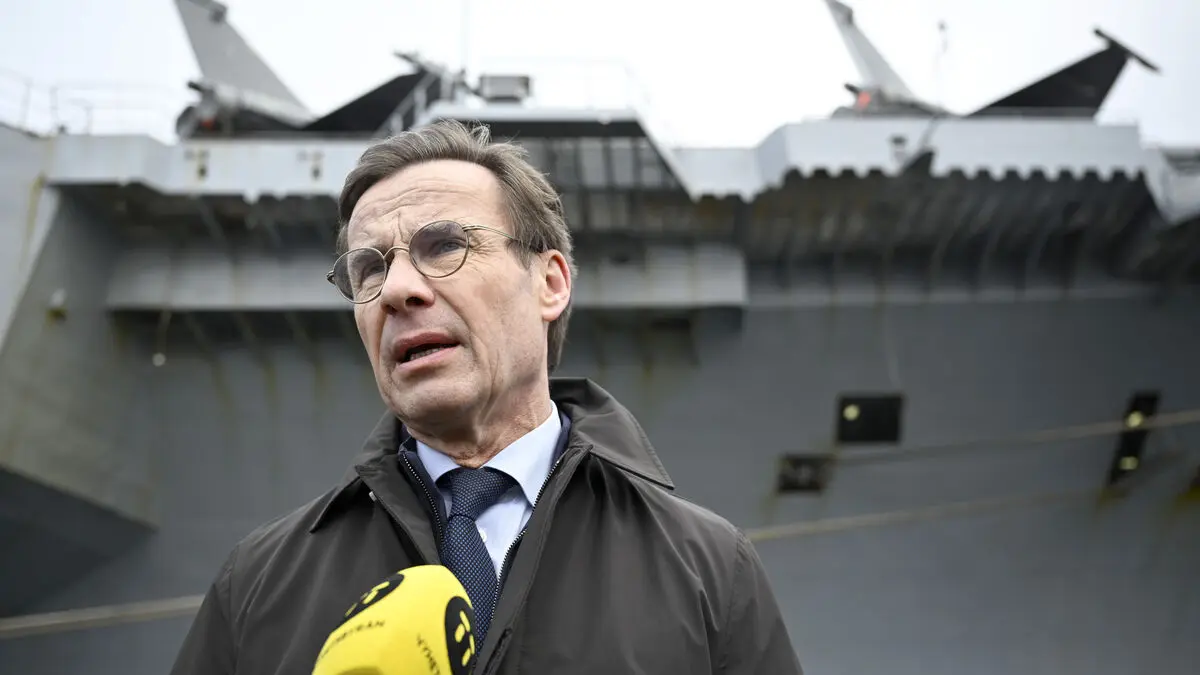Concerns in the world, previous non-alignment and geographical proximity to Russia. These are some reasons behind the unity that Sweden's parliamentary parties now show when it comes to the military buildup that was announced in the Riksdag on Thursday.
Sweden has an unusually large consensus on defense issues and it is often a strength in defense contexts to have the entire Riksdag behind you, says Kjell Engelbrekt to TT.
Others disagree
This also makes it easier for Prime Minister Ulf Kristersson (The Moderate Party) to present a stable image of Sweden at the NATO meeting in The Hague next week.
While parties in France and Germany argue with each other and let ideological cracks permeate defense decisions, Swedish parliamentary parties only let ideology be revealed in the discussion about the financing of the loans for the buildup. This is not the first time Swedish parties have shown a united front on the issue.
Sweden has since the Cold War shown strong unity on defense issues. The non-alignment made the country often stand somewhat alone and needed unity to be able to conduct foreign policy with credibility, says Kjell Engelbrekt.
Closed debate
The unrest in the world, combined with our geographical proximity to Russia, also creates a need to show that we are prepared to defend our political systems, he emphasizes.
TT: Is there a risk in this strong consensus, that one does not even test arguments for the buildup?
Yes. If you have a common front for too long, it can put a lid on debates that are necessary. But the debate is ongoing, not openly, but in closed rooms in the defense committee, party groups and youth movements, says Kjell Engelbrekt.
Cracks behind the united facade do exist, however, he believes, not just when it comes to loan financing of the defense effort. Disputes often arise when it comes to issues such as where to locate regiments.
But given the current state of the world and the relationship with the USA, it may be extra natural to appear with great unity. The perception that we share with the Baltic countries and other Nordic countries is also that Russia is a major problem in our region, says Kjell Engelbrekt.
All parties in the Riksdag support a historic buildup of the Swedish defense. The agreement consists of a total of an additional 300 billion kronor in investments in military and civil defense.
In this way, Sweden meets the requirements that EU countries should spend at least 3.5 percent of GDP on their military defense and 1.5 percent of GDP on civil defense. These requirements will be decided by NATO at the summit in The Hague next week.
The military buildup of 250 billion will be financed by loans. The money will, among other things, go to the purchase of more air defense, ammunition and expanded ground forces.
The remaining 50 billion kronor will also be loan-financed and spent on civil defense, such as healthcare, infrastructure and expanded emergency stocks of food and medicine.
The parties disagree on how the cost of the loans should be financed. According to the The Moderate Party, it should be done through growth, the Social Democrats demand a preparedness tax. The agreement is made in addition to the defense decision that the Riksdag made last autumn.
Sources: TT and the Riksdag.






